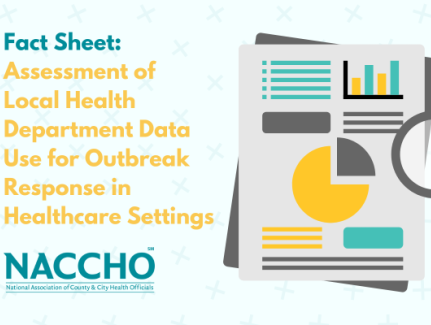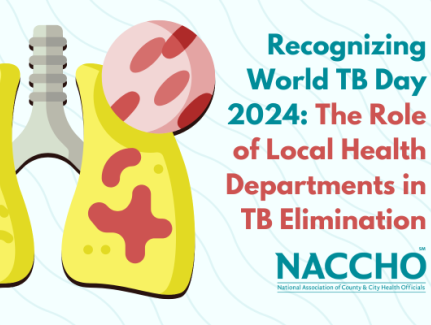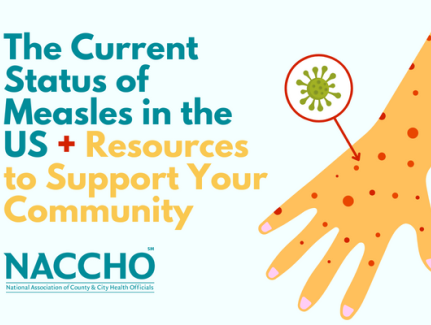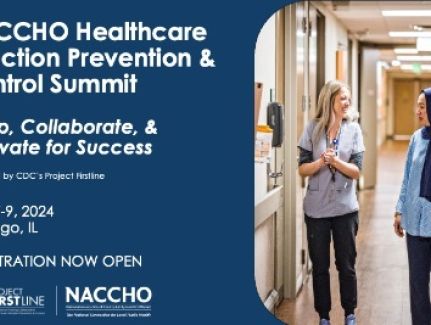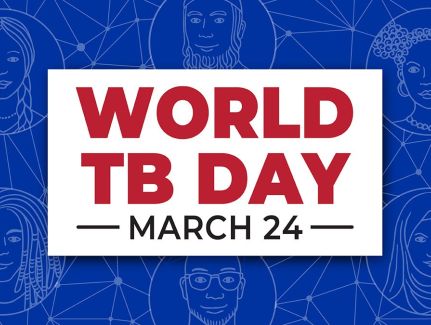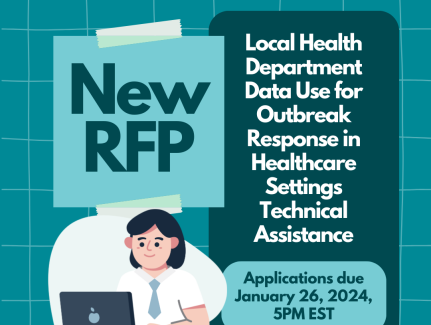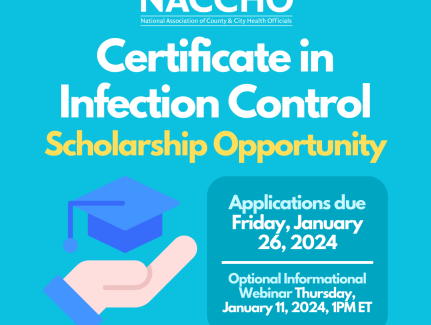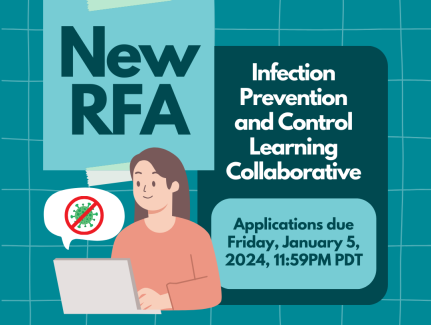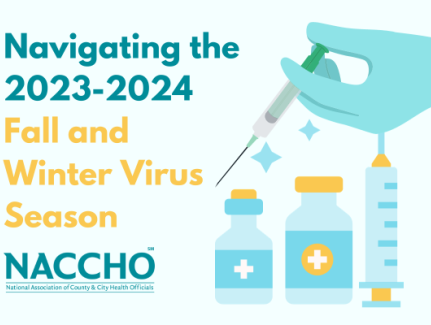Infectious Disease Prevention and Control
Local health departments (LHDs) play an important role in protecting their communities from infectious diseases. A local public health network that quickly and effectively responds to infections and helps implement prevention and control measures across settings is vital to the safety of communities. Activities LHDs do to protect their communities include conducting community outreach; investigating and tracing cases and outbreaks; conducting disease surveillance; managing infectious disease reporting systems; and providing education, training and technical assistance to local stakeholders.
Work through NACCHO's Infectious Disease Prevention and Control portfolio aims to support the capacity of LHDs to conduct infection prevention and control (IPC) activities. NACCHO provides technical assistance, develops and disseminates tools and resources, and facilitates the exchange of information.
From new reports to easy-to-share videos, take a look at some of the top resources that have been developed by the NACCHO IDPC program team below.
Featured Resources
Please find below some of the resources that NACCHO has developed around HAI
| Title | Description | Resource Type | Year of Publication |
|---|---|---|---|
| Local Health Department Engagement in Health Care–Associated Infection and Antibiotic Resistance Work | Published in the Journal of Public Health Management and Practice, this article highlights results from NACCHO's Local Health Department Healthcare-Associated Infections and Antibiotic Stewardship Assessment. | Journal Article` | 2020 |
| Informing Local Health Department and Health Center Partnerships: Creative Collaborations Strengthen Tuberculosis Care in Three Communities | NACCHO, through support from the Health Resources and ServicesAdministration’s Bureau of Primary Health Care, explored how community health centers and local health departments are collaborating to address TB. NACCHO conducted key informant interviews with health department and health center representatives to inform case studies highlighting innovative examples of health centers and health departments coordinating TB services and programs to improve screening, testing, treatment, and care. | Report | 2019 |
| NACCHO HAI Initiatives | Learn about NACCHO’s healthcare-associated infection projects and initiatives. | Fact Sheet | 2018 |
| Lessons in Infection Control: The Role of Local Health Departments in Prevention, Preparedness, and Response | Published in the Journal of Public Health Management and Practice, this article summarizes the findings from NACCHO's LINC Initiative, which funded demonstration sites to enhance coordination in health care and community settings to improve infection control preparedness and response efforts across the nation. | Journal Article | 2018 |
| Healthcare-Associated Infections: A Toolkit for Local Health Departments | Developed in coordination with demonstration sites from NACCHO’s Lessons in INfection Control (LINC) program, this toolkit provides local health departments with guidance, best practices, tools, and resources for expanding activities related to improving local infection control, preparedness, and response. | Toolkit | 2017 |
| One Health: Local Health Department Approaches for Addressing the Interconnectivity of Human, Animal, and Environmental Health Zika Resources for Local Health Departments | NACCHO has worked closely with its members for years on various aspects of One Health to support efforts at local health departments (LHDs). This fact sheet helps give more information on NACCHO projects related to One Health. | Fact Sheet | 2017 |
The IDPC team at NACCHO regularly hosts webinars regarding these topics to help share resources and stories regarding infection disease prevention and control. Below please find recordings to some of our popular events.
Over the course of the past several years, NACCHO has provided assistance to several local health departments around the topic of infectious disease prevention and control. Read more about these projects in the stories below.
Use the dropdown menus below to learn more about NACCHO projects around the topic of infectious disease prevention and control.
NACCHO, with support from the Centers for Disease Control and Prevention (CDC) Division of Healthcare Quality Promotion, launched the Building Local Operational Capacity for COVID-19, Healthcare-Associated Infections, and Antimicrobial Resistance (BLOC COVID-19 +). This is a demonstration site project to support local health departments in building their infection prevention and control capacity. For more information, visit NACCHO’s BLOC COVID webpage.
Healthcare-associated infections (HAIs) are among the leading causes of preventable deaths in the United States. Antimicrobial resistance (AR) is also a major public health threat which compounds the challenge of HAIs. NACCHO recognizes the growing local health department role in HAI prevention and response and that addressing the burden of HAI and AR will require improvements in infection control expertise, infrastructure, and practice. LHDs protect their communities by collecting and analyzing data to identify outbreaks, investigating reportable diseases, coordinating communication among facilities, and containing the further spread of infections in community and healthcare settings. Leveraging lessons learned to strengthen prevention efforts and improving infection control and response infrastructure and capacity are imperative to help local communities better prevent infections across healthcare and community settings. For more information on NACCHO’s work with HAI/AR, visit NACCHO’s HAI/AR webpage.
LHDs in this project worked with NACCHO and APIC Consulting to refine their IPC skills and enhance IPC capacity. LHDs conducted standardized IPC assessments at long-term care facilities using the CDC Infection Control Assessment and Response tool.
NACCHO is proud to be a partner of CDC’s Project Firstline, a comprehensive infection control program designed to help prevent the spread of infectious diseases in U.S. healthcare settings. Project Firstline is committed to preparing the public health workforce and frontline healthcare workers to protect themselves, their patients, and their communities from infectious disease threats. For more on NACCHO’s work with Project Firstline, visit NACCHO’s Project Firstline webpage.
The Emerging Infectious Diseases program supports two subject matter advisory workgroups: Epidemiology and Infectious Disease Prevention and Control. These workgroups develop and review policy statements, advise on issues important to local health departments, and inform Emerging Infectious Diseases programmatic activities. Click here for more information on NACCHO's Subject Matter Advisory Groups and visit our Policy and Advocacy page to view the policy statements developed by these workgroups.
NACCHO features IPC Champions working at the local level. IPC Champions are knowledgeable and enthusiastic about IPC. They work at local health departments and advance infection prevention and control capacity, activities, guidelines, and engagement. The IPC Champion recognition highlights the IPC achievements of local health departments and honors the staff contributing to the work. Submit an IPC Champion nomination on behalf of yourself or a colleague using this form. Read more about our champions here.
NACCHO supports and facilitates LHD representation in federal advisory committees. Federal advisory committees play an important role in shaping public programs and policies by advising the President of the United States and the Executive Branch on specific issues. NACCHO’s Infectious Disease team has formal local health department representation on the Advisory Council for the Elimination of Tuberculosis (ACET) and the Healthcare Infection Control Practices Advisory Committee (HICPAC).
To see a list of current representatives, or learn more about the purpose of these groups, please visit the following websites:
Community Health Program
Christina Baum
Director, Infectious Disease
JavaScript is required to reveal this message. / Email
Community Health Program
Candice Young
Senior Program Analyst, Infectious Disease
JavaScript is required to reveal this message. / Email
Community Health Program
Jaclyn Abramson
Senior Program Analyst, Infectious Disease
JavaScript is required to reveal this message. / Email
Community Health Program
Kimberly Nalley
Senior Program Analyst, Infectious Disease
JavaScript is required to reveal this message. / Email
Community Health Program
Trent Johnson
Program Analyst, Infectious Disease
JavaScript is required to reveal this message. / Email
Community Health Program
Dawn Hairston
Project Manager, Infectious Disease
JavaScript is required to reveal this message. / Email
Community Health Program
Irene Halferty
Communication Specialist, Infectious Disease
JavaScript is required to reveal this message. / Email
Community Health Program
Andrea Chavez Calvi
Senior Program Analyst
JavaScript is required to reveal this message. / Email
Community Health Program
Kristen Ross
Senior Program Analyst, Infectious Diseases
JavaScript is required to reveal this message. / Email
